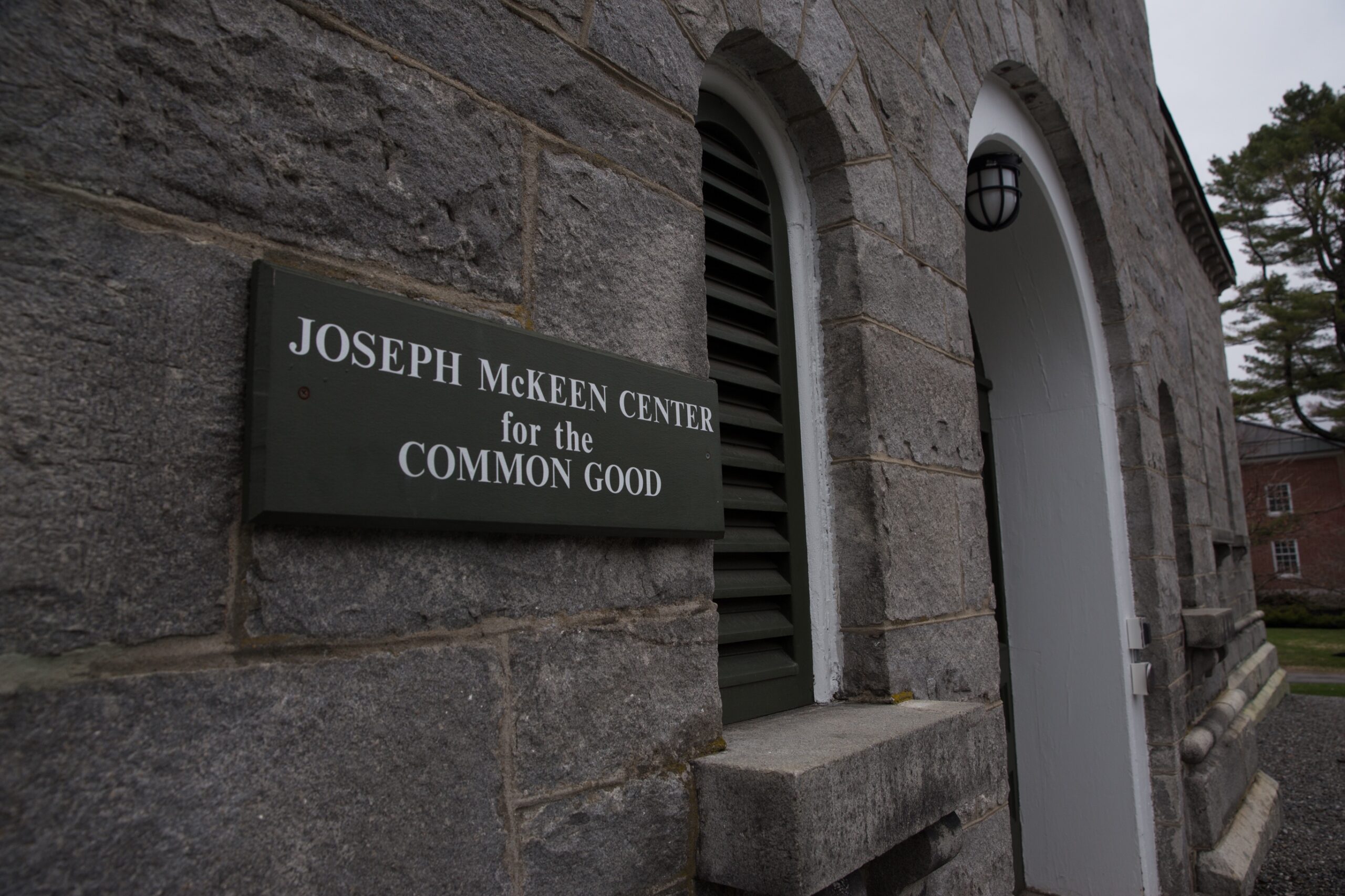As it approaches a decade of service, McKeen Center re-evaluates
May 3, 2019
 Ann Basu
Ann BasuThis academic year marks the 10th anniversary of the creation of the Joseph McKeen Center for the Common Good. The McKeen Center has had a short existence compared to that of the College, but it has come to play an integral role in the Bowdoin community.
“We wanted to bring together all the work we were doing with the Common Good. The Common Good existed before the McKeen Center and exists outside the McKeen Center, but Bowdoin needed a space dedicated to it as much as our faculty are,” said Leadership Gifts Officer Susan Dorn, founder and former director of the McKeen Center.
To celebrate this milestone, the McKeen Center will hold a symposium on May 9 at 3 p.m. in Morrell Lounge in the David Saul Smith Union. From America Reads and Counts to efforts to provide education in impoverished areas of Guatemala, the symposium will shine a spotlight on Bowdoin students and faculty who strive for the Common Good.
“We’ll also have 10 cakes for 10 years at the symposium. We’re pretty excited about that,” said Sarah Seames, director of the McKeen Center.
This anniversary allows the McKeen Center not only to celebrate but also to reflect on how far it has come and where it should go next.
In 2000, Lydia Bell ’00 established the Community Service Resource Center (CSRC) while serving as an AmeriCorps VISTA on campus. She was then hired by the College to continue her work.
The CSRC pooled roughly 12 to 14 organizations and activities on campus that were focused on helping the surrounding community and engaging with individuals and groups beyond the Bowdoin bubble. The CSRC also took over the community outreach activities that the then recently-abolished fraternities had been involved in.
“Many of these programs have been going on at Bowdoin for way longer than just the last 20 years and have been facilitated for the Common Good,” said Bell.
The CSRC shifted in 2003 when Dorn moved to Brunswick and began directing the program. She expanded the CSRC’s partnerships and began thinking about long term goals. She wanted to create a center dedicated not only to community service but also to the Common Good.
Ten years ago, Dorn sat down with Craig McEwan, the former dean of academic affairs; Craig Bradley, the former dean of student affairs; and Barry Mills, the former president, to discuss establishing a place on campus that would highlight the idea of the Common Good and make it an integral part of the Bowdoin education.
When choosing a name, Dorn thought to name the new center after Joseph McKeen, the first president of the College, in allusion to his inaugural address.
“Bowdoin’s commitment to the Common Good is not something we own,” McKeen once said. “It is something we seek.”
The McKeen Center combined existing efforts across campus working for the Common Good, an important promise Bowdoin makes to its students.
“The notion that, in fact, to use your college education is more than you and that you’re fighting beyond your own immediate needs is what the Common Good is,” said Bradley.
McEwan felt that the students and staff working at the McKeen Center had met initial expectations for its growth as an integral part of campus.
“We promised donors that the McKeen Center will be a central part of the College,” said McEwen. “Looking to see what it has become 10 years later, we fulfilled that promise.”
The McKeen Center is working to expand past its current threshold—it has already thought about options moving forward and finding ways to assure that the idea of the Common Good remains an integral part in what it means to receive a Bowdoin education.
“Some students have even said specifically, the McKeen Center was a big part of why they chose to come to Bowdoin,” said Seames.
This sense of individuality is why the McKeen Center does not have a definition for the Common Good—it recognizes that members of the community are motivated by different things. For example, Seames explained that Arthur Brooks, the Inaugural Joseph McKeen Visiting Fellow, has a definition of the Common Good that may differ from the greater Bowdoin community but that is the point in bringing him.
“You have a peculiar obligation to use that Bowdoin education to benefit society in some way.” said Seames. “That’s a really big idea. It’s very broad. And so I think that students really have to push themselves to think about that for themselves individually.”

Comments
Before submitting a comment, please review our comment policy. Some key points from the policy: